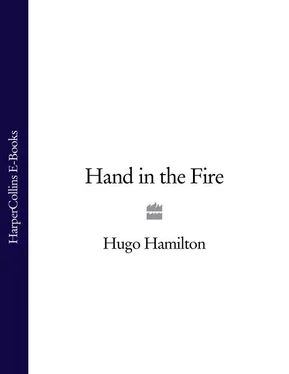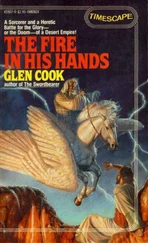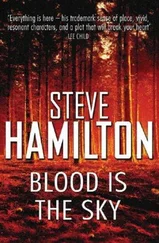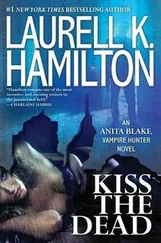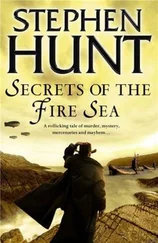Yes. You could say it was love, but there was no future in it. Under the circumstances, with my court case coming up and her being here on a temporary visa, it seemed pointless for us to accumulate too many memories together.
We did all the right things. We went for picnics in the Phoenix Park. We spent time at the Zoo. We went walking along the pier together. We took photos of each other with all the local landmarks in the background. Her eyes caught the sunlight – glossy, hazel-brown pebbles at the bottom of a stream. She came from a place where they still had bears and wolves and numberless trees, where nature might still make a big comeback some day. We heard the sound of the accordion coming and going on the breeze. We passed by the man from Romania playing a gypsy waltz and wondered why we had left home in the first place. We remembered the same kind of things, the sight of villages and church spires and headscarves and open shirts and unshaven smiles in the fields. We felt close to each other – same nostalgia, same tug of self-loathing, same shock of familiar tastes and images from which we had walked away.
In the long run, we were only preventing each other from integrating and moving ahead. It was there in our eyes, in the kind of choices we made, the places we went to, the kind of things we purchased that didn’t cost too much, like ice-cream cones.
For instance, one day I brought her to a place called Howth. It’s meant to be beautiful out there. Famous too, because this was the location where the writer James Joyce first made love to his future wife Nora, something which is commemorated publicly on the sixteenth of June every year in a national celebration of sex and literature and first love. People told me that Ireland used to be sexually repressed, but you’d never think it now, would you?
Howth was just another hill, basically, with a big golf course and some wealthy villas and gates and planes landing nearby at the airport. It didn’t really mean anything to us. When I gave Liuda the relevant tourist information, she shrugged as though I was talking about a past lover. We walked around and sat on a bench. We felt the dampness in the air, rising up into our shoulders. We gazed at the clouds moving fast overhead, which made us want to hold on to the bench with our hands. We kissed and touched, but we couldn’t really connect to the place. It was a mistake to bring her out there because it already belonged to somebody else. We were the latecomers. She looked lonely and pale, so we didn’t stay very long.
‘Come on, Vid. I’m cold,’ she said.
There was quite a breeze blowing and she started rubbing her arms. As we got up and walked back, I spotted a used condom hanging like a pink piece of stripped fruit in the gorse bushes. I deflected her attention, pointing eagerly like a child at the lighthouse, but I think she had seen the condom before me and didn’t mention it out of courtesy.
We were both dragging our feet. When you come from somewhere else, you develop all these prejudices about the people of this country being superior, more funny, more gifted with language and jokes. She said Irish women were strong and very independent. She wanted to learn that. Every time we stared into each other’s eyes, we were reminded only of our own inadequacies. We had to be realistic, I suppose. We were both on the lookout for something better. There was something missing, something preventing us from committing fully to this love in a damp climate.
We stuck it out together for about six months, but there was never any mention of us moving in together permanently. And the idea of setting up a family seemed completely out of the question. Think of it. We would remain strangers to our own children. We would be like two homesick parents, living in a fantasy. Lacking essential local knowledge. Routine stuff that everybody knows around here. Our children laughing at us and correcting our mistakes. Talking to us like we were deaf and blind and had no idea what was going on in the real world outside. We would speak to them in a foreign language and they would never get used to what we sounded like in our own mother tongue. It would remain a life of confusion and contradiction and naturally occurring blasphemies.
I tried to integrate her as much as possible into my life, but it never worked out. One night, I brought Liuda with me to meet Kevin and Helen, but that was a bit of a disaster. Nobody knew what to say except Kevin. He couldn’t take his eyes off Liuda all night. Kept talking only to her as though myself and Helen were not even present.
Liuda was very shy in his presence and hardly said a word. Helen was even more silent, almost aloof. The only thing she said all night was to mention Dursey Island.
‘I believe the cable car is down,’ she said, and Kevin looked up with great surprise, wondering where this thought had slipped out from. ‘They have a new one ordered from Germany,’ she added. ‘So I read in the paper.’
We had more fun on our own, Liuda and myself. At least we had love and sex, like living on our own island. We could also talk about our observations as outsiders, without offending anyone. We spoke about some of the funny things, the contradictions we experienced here. I loved listening to her talking about her clients and how envious they were of her complexion. She told me how Irish women often hated their own skin. They wanted the make-up lashed on thick. ‘Does my face look like a plate of chips?’ they sometimes joked. And how could you answer that? Beauty therapy was not about being honest but about making the customers feel good.
We agreed that people here didn’t want the straight answer all the time. They needed lots of praise. They loved exaggeration. They used compliments like mind-altering substances. She was on commission for skin-care products, so she got used to telling people that they looked gorgeous, cool, brilliant, absolutely amazing – out of this world.
She told me the story of how she came here. She met an Irish businessman who was in Moldova sourcing timber. She ran into him in a bar and he offered to get her a job. Paid for her flight over and put her up. She was nervous because she had heard about girls getting their passports taken off them when they arrived. But her passport didn’t matter as much as her visa, which put her at the mercy of her employer. She could not work for anyone else. So she lived with him and slept with him and cooked for him and worked in the office of his joinery firm.
Once he got tired of her, he allowed the permit to lapse. When he came back from another business trip with a new woman from São Paulo and a consignment of hardwoods that he swore were not from the rainforest, Liuda had to move out and find herself a new employer who would apply for a new visa. Asshole, she called him, and it made me laugh to hear her putting the emphasis in the wrong place. Ass-HOLE.
Inevitably, she was taken out of my hands, as the saying goes.
We were in a bar together one night and this guy came up to me in the jacks, talking about her. He was staggering around the place, pissing dangerously beside me in his urinal, chasing the green, pine-smelling dice around in circles with the force of his flush.
‘Come here,’ he said, zipping up. ‘Is that your girlfriend?’
‘What?’
Out in the corridor, he held my arm and smiled with great sincerity. He had something important to tell me.
‘I just want to let you know that your girlfriend has the most beautiful arse I’ve ever seen. I’m not joking you. I’ve never seen such a beautiful arse before in my whole life.’
What was I meant to say? Thanks?
‘No offence, like. I’m just saying, in case you haven’t noticed.’
He had me cornered.
‘Come ‘ere. Is she a model or something?’
Читать дальше
